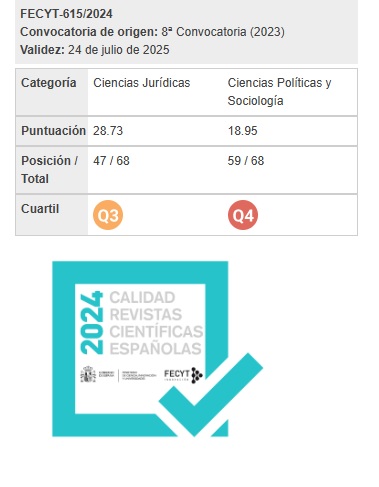The need to end forced sterilisation of women with disabilities from the perspective of human rigths
DOI:
https://doi.org/10.18042/cepc/IgdES.5.03Abstract
This work analyses the effectiveness of Organic Law 2/2020, whose purpose is to end non-consensual or forced sterilisation of persons with disabilities in the context of adapting and amending Spanish law to the provisions of the Convention on the Rights of Persons with Disabilities. The law abolishes Article 156 of the Criminal Code, which provided that sterilisation authorised by a court is not punishable in the case of permanently incapacitated persons who are unable to consent. However, these types of practice will only end when it is guaranteed that women with disabilities who opt for this contraceptive method have been given access to and have given their duly informed consent.
Downloads
Published
How to Cite
Issue
Section
License
Copyright (c) 2023 Celia Prados García

This work is licensed under a Creative Commons Attribution-NonCommercial-NoDerivatives 4.0 International License.
Los firmantes conservarán sus derechos de autoría y garantizarán a la revista el derecho de primera publicación de su obra, el cual estará simultáneamente sujeto a la Licencia de reconocimiento de Creative Commons Reconocimiento-No comercial-Sin obra derivada 4.0 España que permite a terceros compartir la obra siempre que se indique su autor y su primera publicación esta revista.
También podrán adoptar otros acuerdos de licencia no exclusiva de distribución de la versión de la obra publicada (p. ej.: depositarla en un archivo telemático institucional o publicarla en un volumen monográfico) siempre que se indique la publicación inicial en esta revista.





